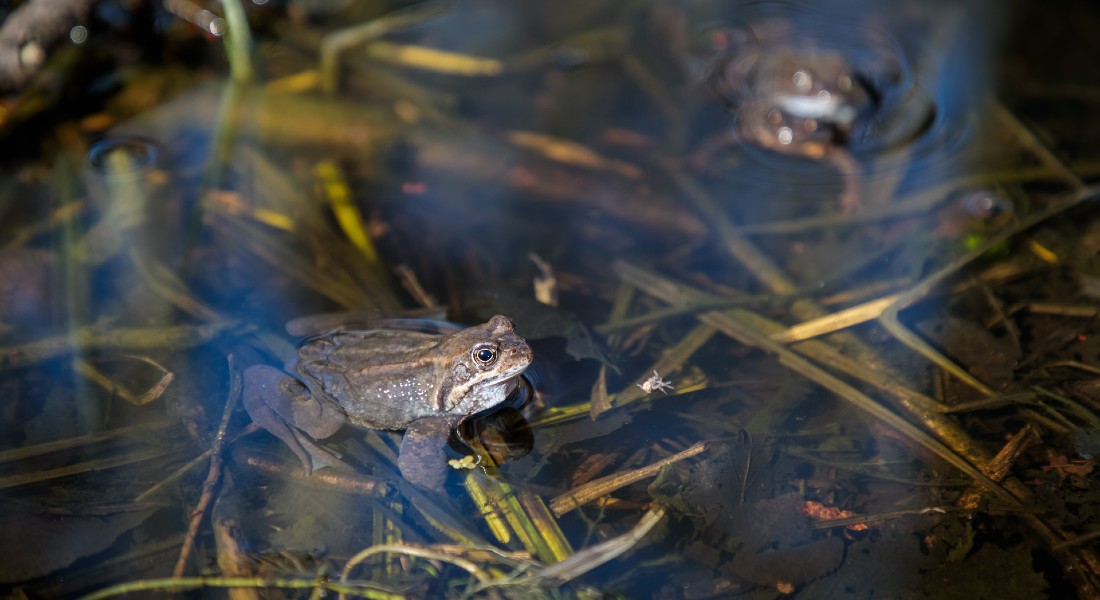The value of nature should be included in Danish economic decision making
Denmark is miles away from meeting its agreed targets for nature and biodiversity. To remedy the Danish and global biodiversity crisis effectively, we need to improve how the value of nature is measured to allow inclusion in policy decisions. This is the message in the new IPBES report, developed with the help of a University of Copenhagen researcher.

Nature in Denmark is in a bad state – as established by numerous reports in recent years. Not only do we rank at the bottom in terms of protected natural areas among EU countries, habitat quality is also among the worst. We have committed ourselves to halting the decline, restoring nature and doing our part to protect 30% of the EU's land mass and seascape by 2030.
To reverse the critical state of nature, both in Denmark and globally, economists at the Ministry of Finance and other institutions need to begin to include the multiple values offered by nature and biodiversity into socio-economic analyses. This is one of the key messages of the Intergovernemental panel for biodiversity and ecosystem services, IPBES, in its new assessment, to which economist and professor Mette Termansen of the University of Copenhagen has contributed.
"Only a narrow set of material values are included in economic and policy decisions, such as the market value of biomass. The report reviews methodologies to how, the Ministry of Finance as an example can quantify the contribution of nature to society and how these values can better be included by decision-makers. A paradigm shift is definitely needed to achieve sustainability," says Professor Termansen, of UCPH’s Department of Food and Resource Economics.
The report maps and assesses about 50 methods currently used to quantify nature, including economic, social and cultural values. It is based on four years of work by 82 experts from around the world. However, only a small fraction of these methodologies are actually taken up in decision-making processes.
“One of the reasons that the world is in a biodiversity crisis is because we and other nations overlook the value of biodiversity and fail to embed this value, alongside other values of nature, into our societal model. If we want to take this report seriously, as the governments of 139 countries have asked for, the values of nature must be included in the annual Finance Act and sectoral policies. Here we have a science-based tool for how to begin turning the tide," says Lars Dinesen, the IPBES coordinator in Denmark.
While the focus of the report is global, it is important that Danish society also recognizes how it applies to us, as Mette Termansen points out:
"For Denmark, our intensive land use is at the core of the problem. It negatively impacts both nature and people. Impacts on nature and the environment need to be included in economic decision-making, and we need a more comprehensive strategy for how to better prioritize land and other natural resources."
The battle over land
With more than 60 percent of our territory devoted to agriculture, the competition for land for multiple purposes is particularly acute in Denmark. At the same time, the climate agenda is highest on the green agenda. Mette Termansen points out:
"Globally, the biodiversity crisis is just as important as the climate crisis, but political attention is on how to achieve climate goals. And, this doesn't necessarily go hand in hand with biodiversity conservation and other values of nature. For example, old-growth forests and national parks aren’t compatible with intensive biomass production, used in the green transition away from fossil fuels. Therefore, it is important to pay greater attention to the biodiversity goals, while including the value of nature for people," says Termansen.
Economists need to think outside the box
Professor Termansen points out that including environment and nature into socio-economic assessments is now recommended, but neither a requirement nor common practice.
"Many decisions in this country are made about land use and the utilization of natural resources without assessing their importance for people. But numerous methods have been developed to value nature. These include analyses of how home prices vis-a-vis access to nature, as well as analyses of nature's recreational and health value," says Termansen.
Consequently, economists at the Ministry of Finance need to think outside their usual boxes.
"Accounting for the socio-economic costs of climate emissions were not considered just a few years back. Now, such costs are incorporated into economic evaluations. This practice is still lacking when it comes to biodiversity and ecosystem services. So, we need to work on how to operationalize this in day-to-day practices. The IPBES report can help us do so," states Mette Termansen.
Lars Dinesen hopes that politicians, with the help of the national researchers, will begin working to do so based on the new report.
"I hope the report has a major impact, because it is an area where there's definitely room for improvement and because the development of the report was commissioned at the government level. It fills a knowledge gap. Now, we need to make sure that it doesn’t end up collecting dust on some shelf, but is instead translated into practical action at the national level," says Lars Dinesen.
Contact
Mette Termansen
Professor
Department of Food and Resource Economics
University of Copenhagen
mt@ifro.ku.dk
+45 52 39 04 97
Lars Dinesen
Senior Advisor for IPBES Denmark
Specialist Consultant at the Globe Institute
University of Copenhagen
lars.dinesen@sund.ku.dk
+45 93 50 95 70
Maria Hornbek
Journalist
Faculty of Science
University of Copenhagen
maho@science.ku.dk
+45 22 95 42 83
